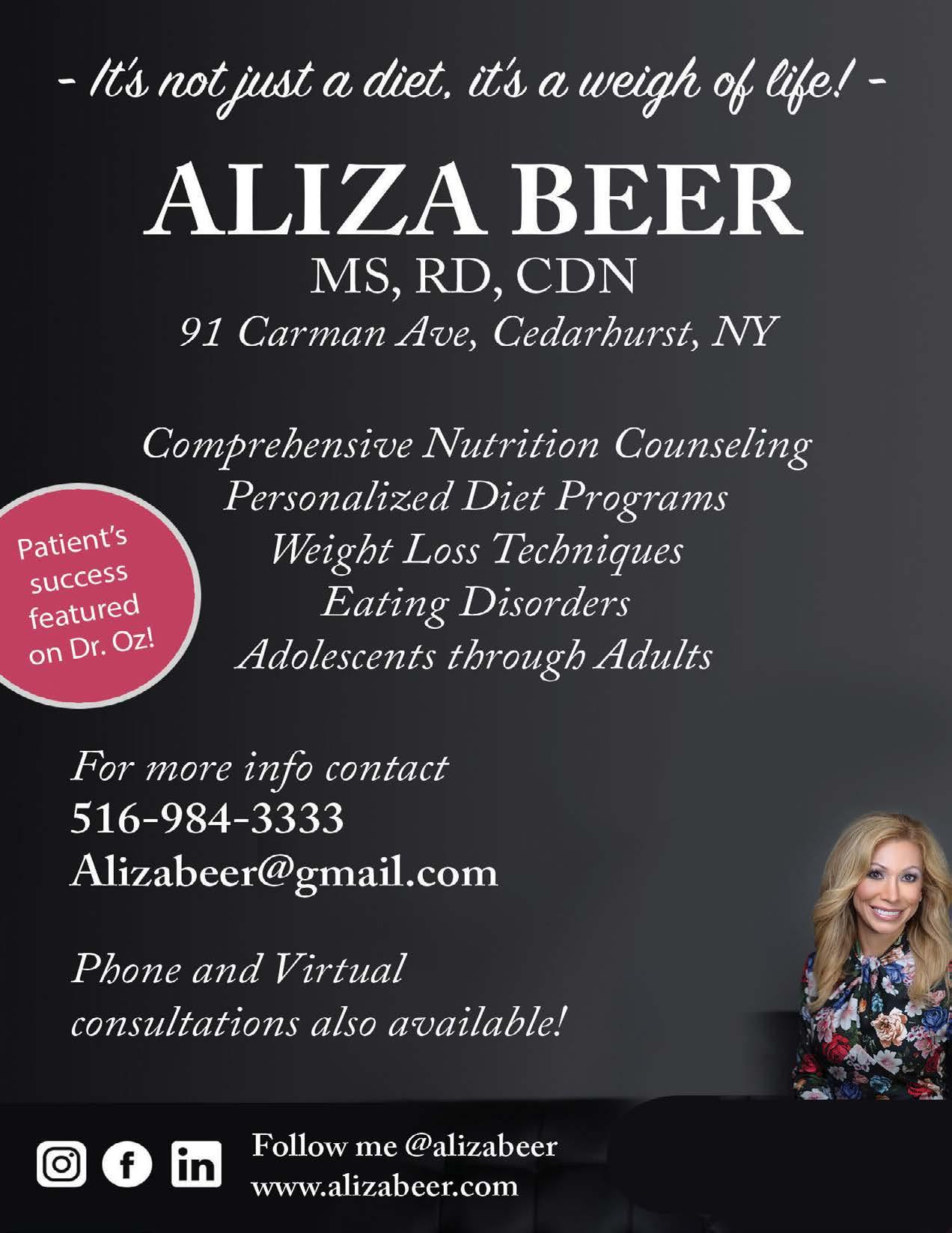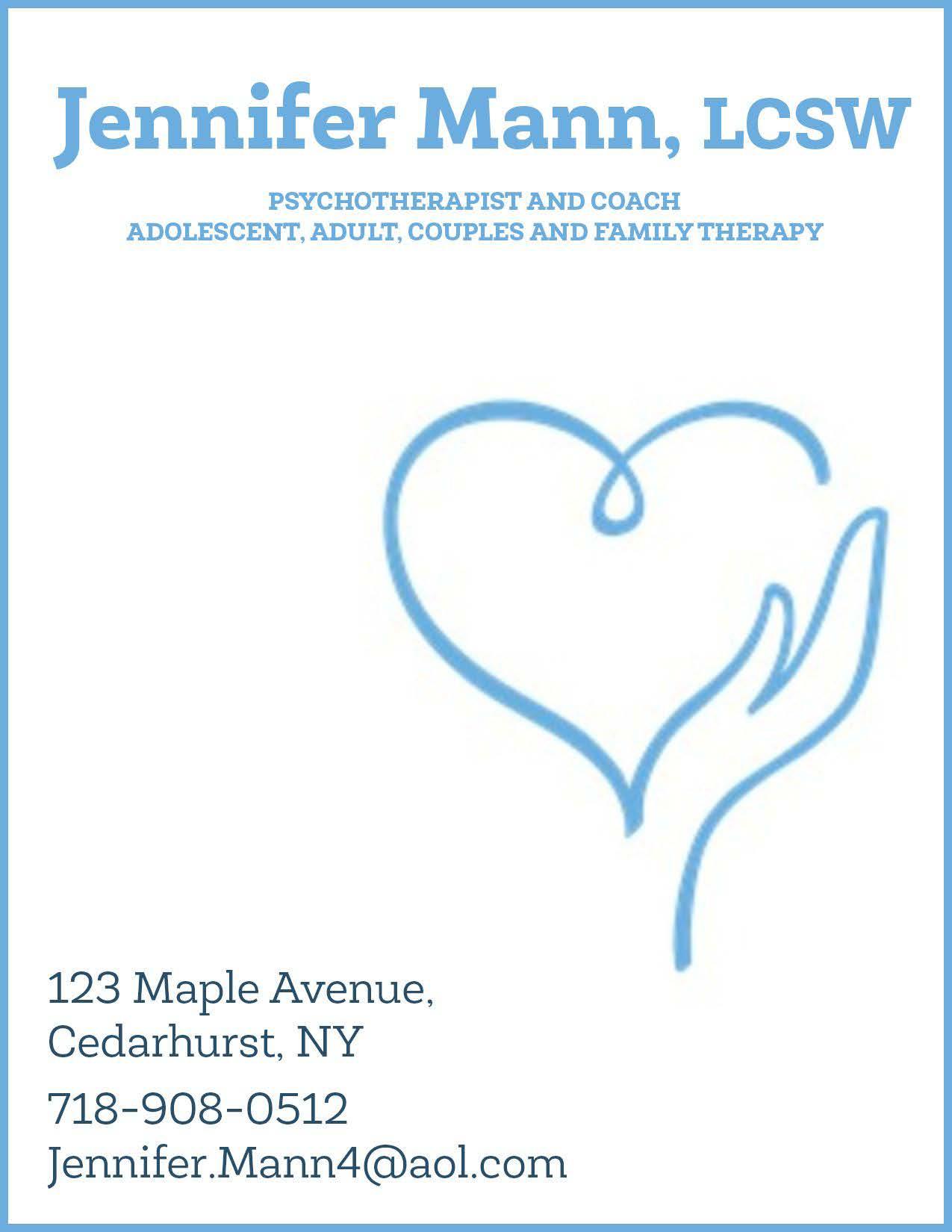
6 minute read
An Egg-cellent Food by Aliza Beer, MS RD CDN
Health & F tness
An Egg-Cellent and Healthy Food
By Aliza Beer MS, RD, CDN
An egg is a perfect food and a mainstay in my diet.
One can eat eggs for breakfast, lunch or dinner, and in a variety of ways – be it scrambled, sunny-side up, poached, or hard boiled. One egg contains a powerhouse of protein, healthy fats, antioxidants, and many essential vitamins and minerals. For many years, we were all told to shun egg yolks due to their high cholesterol content. However, in 2000, the American Heart Association (AHA) revised its dietary guidelines and gave healthy adults the greenlight to enjoy eggs once again. The AHA’s guidelines now allow one yolk a day (the egg white is pure protein, so it is a non-issue) for healthy adults, while still advising a total daily cholesterol limit of 300 mg. For reference, one large egg contains 213 mg of cholesterol, all within the yolk, about 2/3 of the recommended daily limit. After 25 years of study, it has become evident that cholesterol in food is not the culprit, but that saturated fat has a much more significant effect on blood cholesterol. Full fat dairy products and fatty meats are examples of foods that are loaded with saturated fat and which trigger the body to produce cholesterol.
Let us unscramble all the amazing benefits to be found in the egg and why it is one of the best foods we should be eating right now. • Perfect Protein: Proteins are the main building blocks of the body and serve both structural and functional purposes. Protein consists of amino acids that are linked together like beads on a string and then folded into complex shapes. There are about 21 amino acids that the body needs to build its proteins. Nine of these amino acids cannot be produced by the body and have to be obtained from the diet. They are known as essential amino acids. The quality of a protein source is determined by its relative amounts of these essential amino acids. A protein source that contains all of them in the right ratios is a high-quality source of protein. Eggs are among the best sources of protein in the diet. In fact, a food’s biological value (a measure of protein quality) is often evaluated by comparing it to eggs, which are given the perfect score of 100. • Eggs Protect the Eyes: Lutein and zeaxanthin are two antioxidants both found in the yolk. They tend to accumulate in the retina part of the eye, where they protect the eyes from harmful sunlight. These antioxidants significantly reduce the risk of macular degeneration and cataracts, which are among the leading causes of vision impairment and blindness in the elderly. In one study, eating 1.3 yolks a day for 4.5 weeks increased blood levels of zeaxanthin by 114-142% and lutein by 28-50%.
• Weight Loss Friendly:
Eggs are low in calories and high in nutrients. One whole egg is about 78 calories. I usually recommend a meal consisting of one whole egg and then the addition of a bunch of whites, as much as you need, and veggies. Add a whole grain toast or a sweet potato, and you have yourself a very low calorie (probably under 300), yet extremely satisfying meal.
High protein foods, like eggs, have been known to reduce appetite and increase fullness, compared to foods that contain less protein. Studies have repeatedly shown that egg meals increase fullness and reduce food intake during later meals, compared to other meals with the same calorie content. The egg will also help boost your metabolism through a process called the thermic effect of food, which is the energy required by the body to metabolize foods, and is higher for protein than for fat or carbs. This means that high protein foods, such as eggs, help you burn more calories.
Many studies have shown the significant effect of eggs on weight loss, especially when eaten for breakfast. Eggs may increase your feeling of fullness and make you automatically eat fewer calories, for up to 36 hours!
• Loaded with Choline:
Choline is an essential nutrient and needed for various processes in the body. It is required to synthesize the neurotransmitter acetylcholine and is a component of cell membranes. A low choline intake has been implicated in liver disease, heart disease, and neurological disorders. This nutrient is especially important for pregnant women. Studies show that a low choline intake can raise the risk of neural tube defects and lead to decreased cognitive function in the baby. The best sources of choline in the diet are egg yolks and beef liver. • Whole Nutrition: One
whole egg contains an amazing range of nutrients. Remember, the nutrients in the egg can become an entire baby chicken! One egg is a good source of vitamin B12, vitamin B2, vitamin A, vitamin B5, and selenium. Eggs also contain small amounts of almost every vitamin and mineral required by the human body, including calcium, iron, potassium, zinc, manganese, vitamin E, folate, and many more. It’s important to understand that almost all the nutrients are contained in the yolk, while the whites contain only protein.
The full benefits of eggs can only be realized if you store them properly, in the refrigerator, and cook them thoroughly to kill any potential bacteria.
Not all eggs are created equally. Manufacturers and chicken farmers have taken steps to enhance an egg’s nutritional properties. There is now a whole industry devoted to improving the dietary quality of the egg. For example, “designer” eggs come from chickens that are allowed to roam freely (free range) or whose feed is supplemented with omega-3 fatty acids. Hens given feed that is free of animal products produce vegetarian eggs, while those given all-organic feed produce organic eggs. Some chicken feed is enriched with canola oil, bran, kelp, flaxseed, marine algae, fish oil, or vitamin E to increase the eggs’ healthy omega-3 fatty acid content. Certain types of feed are designed to reduce the saturated and total fat content of the egg yolk. Mariglod extract has even been used to increase the lutein content of eggs. Most of these designer eggs come with designer prices and cost significantly more than regular eggs.
Eggs are one of the healthiest, most accessible, and easily cooked/ prepared foods and should be incorporated as a staple in our diets. They are a wonderful protein to eat on the run (think hardboiled), or great for sneaking in vegetables like broccoli and spinach into your kids’ diets by

disguising them as kugels or souffles. Eggs make a super snack after exercise when your body needs complete and high-quality protein to help repair any muscle damage.
On vacation, bring along either a sandwich or waffle maker to cook eggs on, or if you have access to a burner, bring (or ship) a non-stick frying pan, and you have yourself a healthy and easy meal, anytime of the day or night.
Eggs are one food that are
certainly hard to beat!

Aliza Beer is a registered dietitian with a master’s degree in nutrition. She has a private practice in Cedarhurst, NY. Patients’ success has been featured on the Dr. Oz show. Aliza can be reached at alizabeer@gmail.com, and you can follow her on Instagram at @alizabeer.

